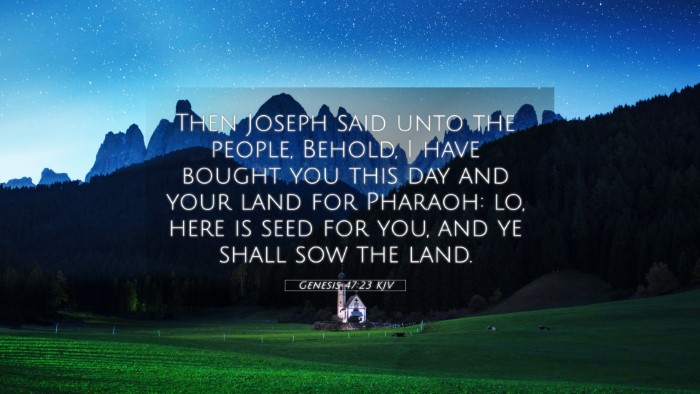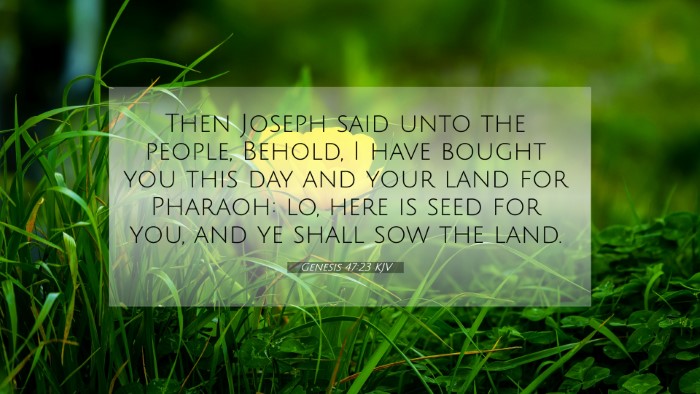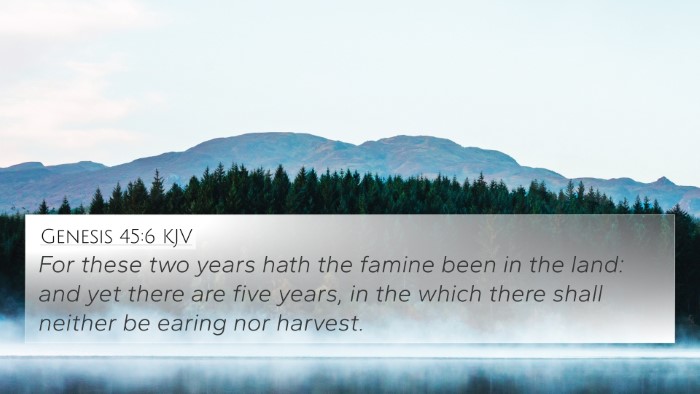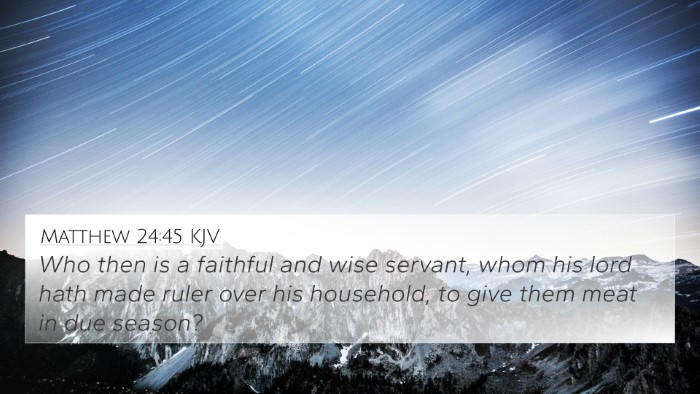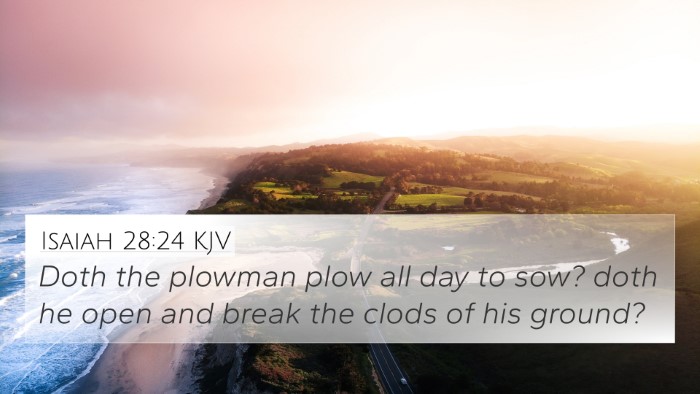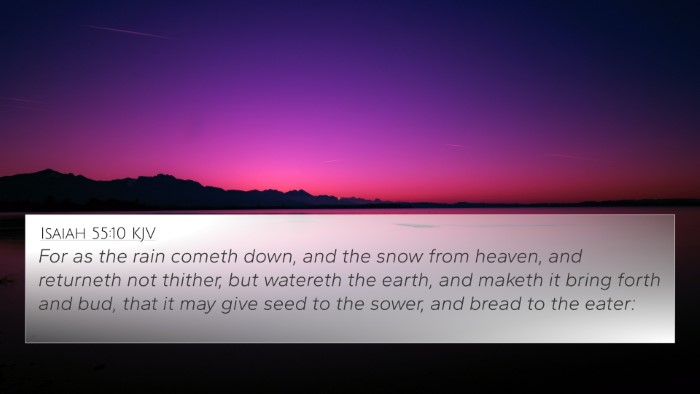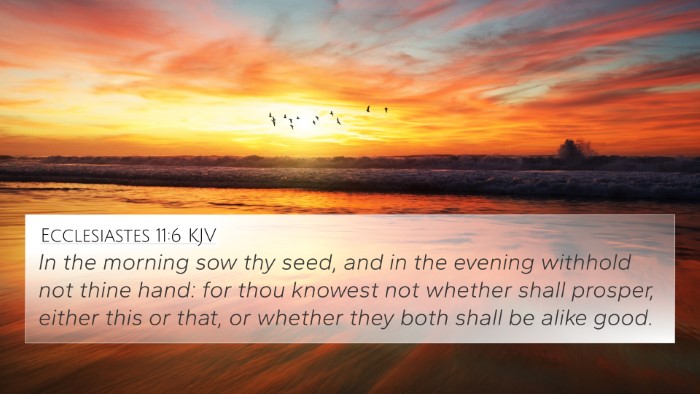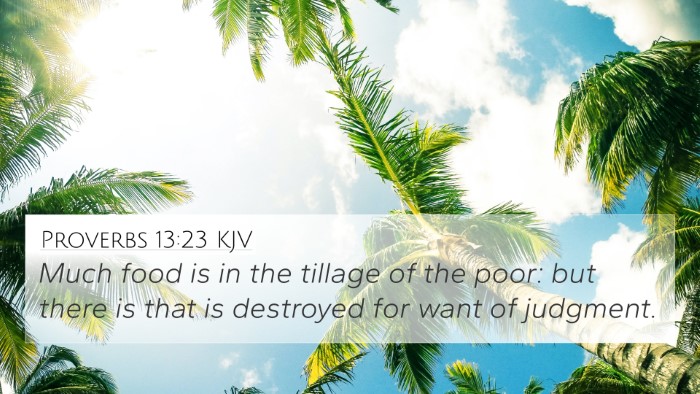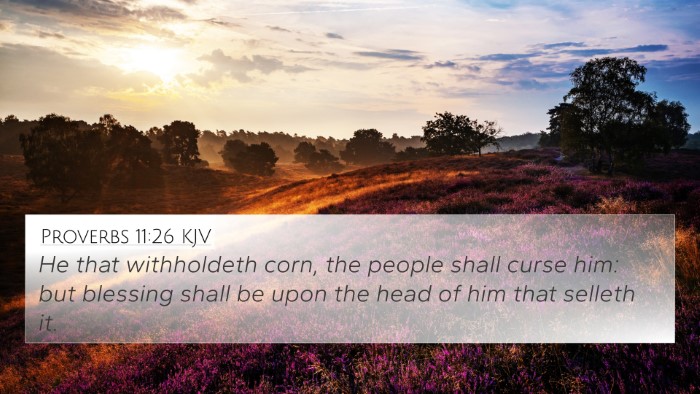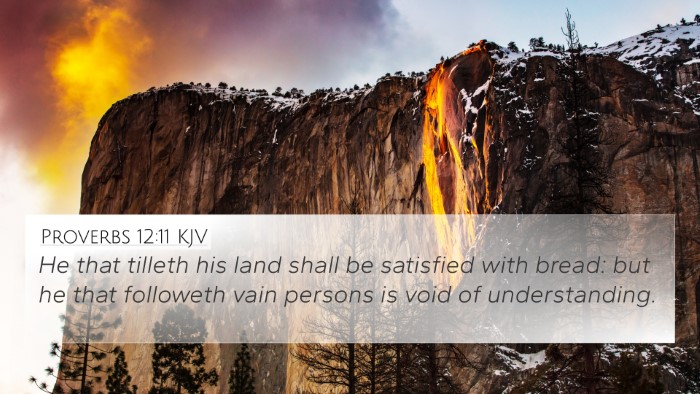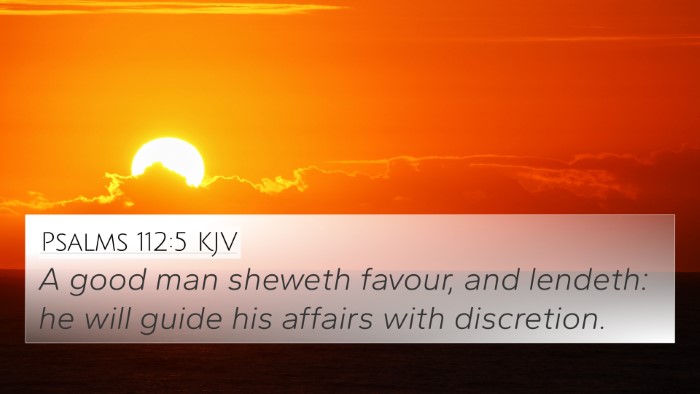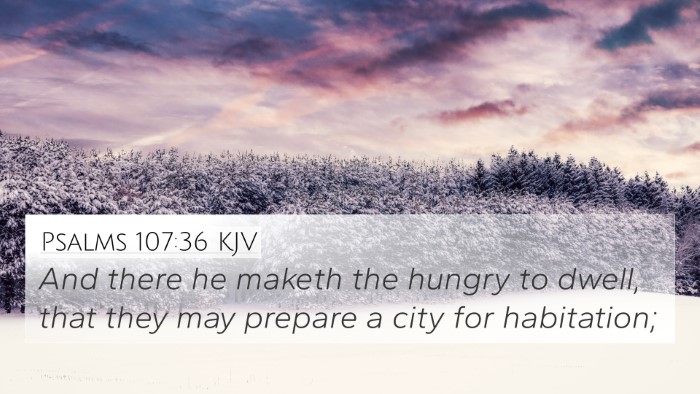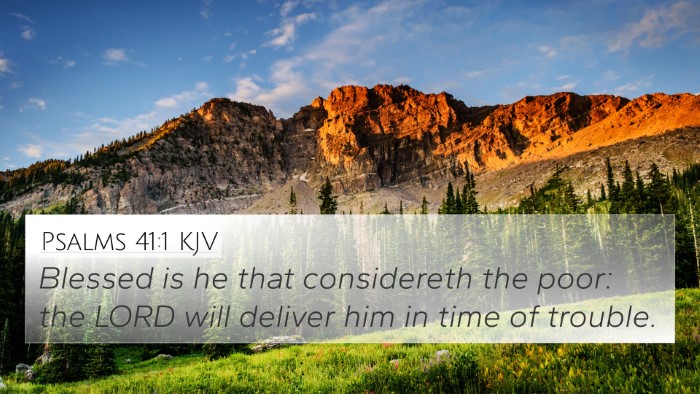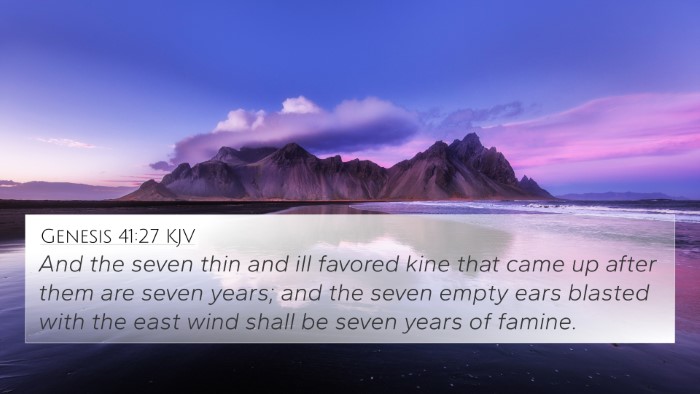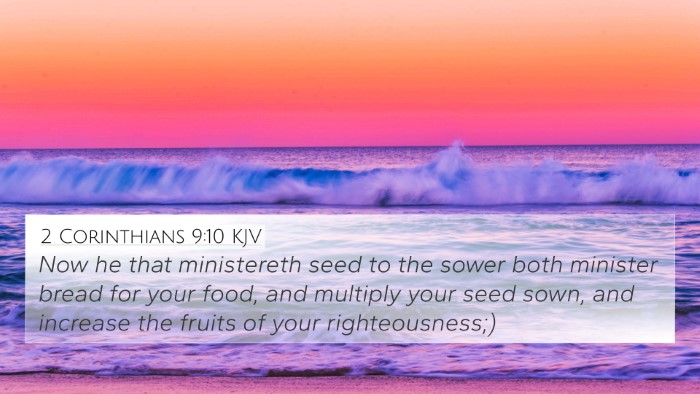Understanding Genesis 47:23
Verse: Genesis 47:23 (KJV) - "Then Joseph said unto the people, Behold, I have bought you this day and your land for Pharaoh: lo, here is seed for you, and ye shall sow the land."
This verse occurs in the context of Joseph managing the resources of Egypt during a severe famine. After Joseph interpreted Pharaoh's dreams and prepared Egypt for the upcoming famine, he acquired the lands and people, integrating them under Pharaoh's authority while ensuring their sustenance. The insights provided by various public domain commentaries shed light on its deeper meanings and implications.
Commentary Insights:
Matthew Henry's Commentary
Matthew Henry emphasizes the administrative wisdom of Joseph and how he was able to manage the resources effectively during a time of crisis. He reflects on the theme of stewardship, noting that Joseph's actions exemplified a leader who cared for his people, securing their survival and sustaining Pharaoh's interests. Henry also draws attention to the idea of servitude in the context of the famine, suggesting that the people's willingness to sell their land was a practical response to dire circumstances.
Albert Barnes' Notes on the Bible
Barnes notes that this transaction illustrates a transfer of wealth and land ownership from the common people to Pharaoh, creating a centralized economy in Egypt. He discusses the implications of this consolidation of power and how such transactions were not merely financial but were linked to the broader theme of divine providence in ensuring the Egyptians’ survival during adversity. Barnes also highlights the significance of providing seed for the people, showing Joseph's commitment to their agrarian identity.
Adam Clarke's Commentary
Clarke offers a perspective on the negotiations that took place, emphasizing that while Joseph's actions may seem harsh, they were necessary for the welfare of the nation. He discusses the psychological aspect of the people's submission and notes that this created a legacy of servitude that would persist. Clarke juxtaposes the actions of Joseph with scripture emphasizing God's providential care, showing that even in dire circumstances, there is a thread of divine guidance and foresight.
Thematic Connections and Cross-References
Genesis 47:23 is rich with thematic connections, serving as a pivotal moment in the narrative where the destinies of Joseph, the Egyptians, and Pharaoh converge. Below are some cross-references relevant to this verse:
- Genesis 41:46: Joseph's rise to power and his role in managing Egypt during the famine.
- Genesis 42:25: Joseph’s objective to ensure that his family was cared for during the famine.
- Genesis 45:5: The reconciliation between Joseph and his brothers, which ties back to the earlier themes of family and provision.
- Exodus 1:8-14: The eventual enslavement of the Israelites in Egypt, which can be traced back to the policies instituted during Joseph’s administration.
- Matthew 20:25-28: Jesus’ teaching on servanthood connects the themes of leadership and servitude found in Joseph’s dealings.
- Romans 8:28: Affirmation that God works all things for good, echoing the themes of divine providence evident in Joseph's story.
- James 1:12: A reminder that perseverance during trials can lead to blessings, reflecting Joseph's journey from slavery to leadership.
Connections Between Bible Verses
When considering the cross-references for Genesis 47:23, various connecting scriptures invite deeper exploration. Every reference allows for a comparative Bible verse analysis that reveals underlying themes of sacrifice, providence, and leadership. Additionally, examining connections between the Old and New Testament provides insight into how God's narrative unfolds within human history, often leading to unexpected outcomes.
Conclusion
Genesis 47:23 serves not just as a historical account but as a theological statement about providence, power, stewardship, and divine purpose. By cross-referencing this verse with related scriptures, one can uncover a tapestry of connections that enriches both personal faith and scholarly study.
Tools for Effective Bible Cross-Referencing
For those seeking to deepen their understanding of Genesis 47:23 and similar verses, utilizing tools such as a Bible concordance or a Bible cross-reference guide can significantly enhance study sessions. Engaging with resources like Bible reference resources and Bible cross-reference systems can also aid in effectively linking Bible scriptures.

